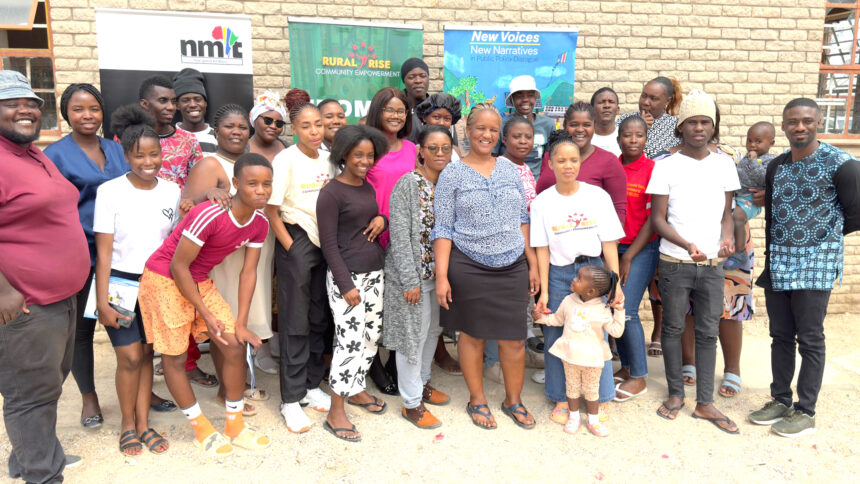The vice chairperson of the Erongo Regional Youth Forum, Stephanus Petrus, says rural communities are the backbone of the nation, rich in culture, tradition and resources, but face challenges, particularly when it comes to youth participation in decision-making processes.
It is through empowering these community-led initiatives that can cultivate a sense of ownership, responsibility and leadership among rural youth.
“The allure of urban areas often draws our youth away from their roots, leaving behind a void that hinders the development of rural communities. By addressing the socio-economic barriers that push them towards urban centres, we can begin to stem the tide of rural-urban migration and instead, cultivate environments that offer viable futures within their communities,” said Petrus at an event in Uis recently, organised by RuralRise.
RuralRise is a dedicated non-profit organisation that is committed to uplifting rural communities across Namibia.
He stated that under the theme ‘From the Ground Up (#FTGU): Empowering Rural Youth for Development in Namibia’, the initiative emphasises the importance of sustainable growth in rural areas.
“This means developing strategies that are not only economically viable, but also environmentally sound, and socially inclusive. Our youth must be equipped with the skills and knowledge to drive this sustainable growth, ensuring that their communities thrive for generations to come,” Petrus stated.
He strongly believes that youth participation in decision-making processes is not a luxury, it is a right. But for too long, the rural youth have been sidelined, and their voices drowned out by the louder, more dominant narratives of urban centres.
“This must change. We need to create platforms where the voices of rural youth are not only heard, but are also integral to the decision-making processes that shape their future.”
He added that accessing opportunities for economic and social advancement is equally crucial.
“We must ask ourselves, what are the barriers preventing our rural youth from accessing these opportunities, and how can we collectively dismantle them? This will require concerted efforts from all sectors of society, from government and private sector partners, to community leaders and, most importantly, the youth themselves,” said the youth leader.
The principal of Petrus Ganeb, Venetdy Uises stated that there are several issues affecting rural youth, which sometimes to a certain extent do not receive the undivided attention that they deserve.
“Alcohol and drug abuse emerged as one of the major challenges the youth face, severely impacting their ability to focus on education and personal growth. This is further compounded by the prevalence of child-headed families, where many children are forced to stay away from school to care for their siblings,” highlighted Uises.
She indicated that the overall education system is strained by the difficulty in attracting and retaining qualified teachers, which significantly hampers the quality of learning in the Uis community.
Additionally, the scarcity of resources is stark—five learners are forced to share a single textbook, and limited access to technology leaves students disconnected from modern educational tools.
“Transportation also poses a challenge, with children walking long distances to school, resulting in late arrivals and reduced attendance. Teenage pregnancy further complicates the situation, impacting young learners’ futures,” she stated.
-psiririka@nepc.com.na



